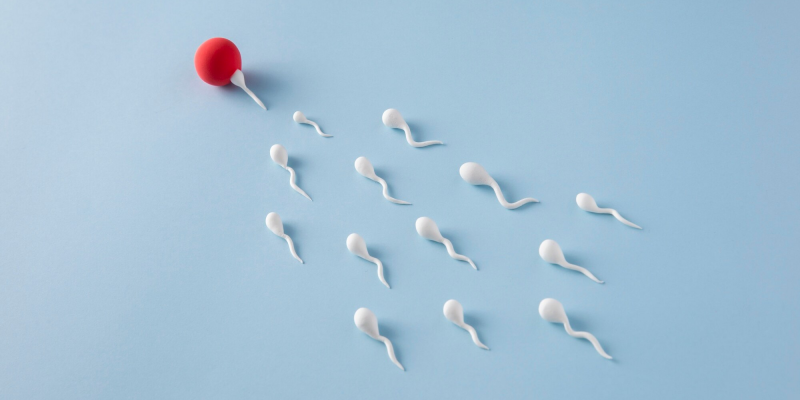Many women wonder whether there are signs that sperm has successfully entered the uterus after sexual intercourse. While there is no definitive way to confirm this without medical testing, there are several early indicators that may suggest fertilization has occurred. After ejaculation, millions of sperm travel through cervical mucus into the cervix, continue into the uterus, […]
Many women wonder whether there are signs that sperm has successfully entered the uterus after sexual intercourse. While there is no definitive way to confirm this without medical testing, there are several early indicators that may suggest fertilization has occurred.
After ejaculation, millions of sperm travel through cervical mucus into the cervix, continue into the uterus, and proceed toward the fallopian tubes to meet the egg. This journey typically takes between 30 minutes and several hours, depending on the quality of the sperm and the conditions within the female reproductive tract. Only the healthiest and most motile sperm are capable of surviving this process and reaching the egg for fertilization.
Possible Indicators That Sperm Has Reached the Uterus

Image source: Freepik
1. Changes in Cervical Mucus
After ovulation and potential fertilization, cervical mucus may become thicker and take on a milky white appearance. This change helps protect the developing embryo in the uterus.
2. Rise in Basal Body Temperature (BBT)
If fertilization occurs, a woman’s basal body temperature may increase by approximately 0.5°C (0.9°F) and remain elevated until her next menstrual period. This is due to hormonal changes following implantation.
3. Mild Lower Abdominal Cramping
Some women may experience mild cramping or a twinging sensation in the lower abdomen a few days after intercourse. This could result from the implantation of the embryo into the uterine lining, which usually occurs 6 to 12 days after ovulation.
4. Light Spotting (Implantation Bleeding)
Implantation may cause light bleeding or spotting, known as implantation bleeding. This discharge is typically pink or brown and lasts for one or two days.
Read more: Red Flags in Your Menstrual Cycle: Symptoms You Shouldn’t Ignore
5. Breast Tenderness or Sensitivity
Hormonal changes after fertilization can cause the breasts to feel fuller, sore, or more sensitive to touch, an early sign of pregnancy as the body begins preparing for breastfeeding.
6. Fatigue and Drowsiness
Following implantation, the body increases production of the hormone progesterone, which may cause fatigue and a greater need for rest or sleep.
7. Nausea or Morning Sickness
Although more common after the fourth week of pregnancy, some women report early-onset nausea triggered by hormonal shifts following implantation.
8. Frequent Urination
Increased levels of the hormone hCG (human chorionic gonadotropin) after successful implantation can lead to more frequent urination, one of the early signs of pregnancy.
Factors That Influence Sperm’s Ability to Reach the Uterus
- Sperm Quality: Healthy sperm with strong motility and normal morphology have a better chance of reaching and fertilizing the egg.
- Timing of Intercourse: Intercourse during ovulation significantly increases the likelihood of sperm reaching the uterus and fertilizing the egg. Ovulation typically occurs 14 days before the start of the next menstrual cycle.
- Reproductive Health of the Woman: A healthy uterus, fertile cervical mucus, and balanced hormones are key factors in allowing sperm to reach the uterus and successfully fertilize an egg.
Read more: Understanding the Anatomy and Functions of the Testicle
While there is no immediate method to confirm whether sperm has entered the uterus, early signs such as changes in cervical mucus, elevated basal body temperature, mild cramping, and light spotting may suggest that fertilization and implantation have occurred. However, not all women will experience these symptoms. To confirm pregnancy, it is advisable to take a pregnancy test 10–14 days after ovulation or consult a healthcare professional.
For comprehensive information on reproductive health, fertility planning, or assistance with infertility, the team at Morula IVF Indonesia is ready to help. Morula IVF offers professional consultations and advanced fertility treatments such as intrauterine insemination (IUI) and in vitro fertilization (IVF). With over two decades of experience, their dedicated team of obstetricians and gynecologists is committed to supporting individuals and couples on their journey to parenthood. Visit the official Morula IVF website or contact our clinic directly for more details and personalized care.
References
- NCBI. “Physiology of Fertilization.” Accessed March 23, 2025.
- Cleveland Clinic. “Sperm: Function and Reproduction.” Accessed March 23, 2025.
- MedlinePlus. “Conception and Fertilization.” Accessed March 23, 2025.




